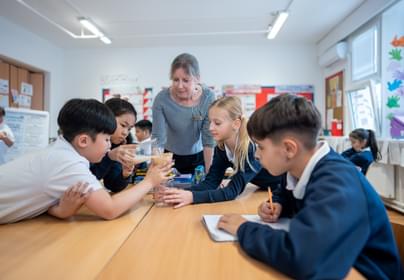Can being bored be good for children? Boredom doesn’t necessarily need to be viewed as a bad circumstance, but rather as an opportunity to unplug, daydream and let creative juices flow.
Here are some benefits of boredom in children which you might find equally surprising and useful.
A relentless mind hungers for stimulation.
Being bored, and allowing their mind to wander, develops your child's divergent thinking – the ability to come up with creative new ideas. Boredom also inspires lateral thinking, engaging their mind to seek a more creative solution to the problem at hand because the obvious one is just not very interesting.
Being bored is an important way for your child to develop their strength of character – encouraging perseverance, effort and passion.
Being bored develops problem solving skills, which in turn encourages initiative. Our society has increasingly become used to instant gratification, and children often lead highly structured lives with little time to just ‘be’. When bored, your child has to rely on themselves for entertainment, taking the initiative to tackle the problem themselves in order to overcome this state of mind.
Boredom gives your child an opportunity to try new things, test their limits and take risks. When they have to occupy themselves, and do so successfully, this experience gives them a real boost of confidence.
Being bored gives your child the opportunity to think their own thoughts and get to know themselves better. Allowing their mind to wander and giving them time to just be still is proven to be very beneficial for their mental health.
If children are always busy with a focused activity, they take their surroundings for granted. Boredom allows them to engage with their environment so that they feel a part of it.
So, how can you make the best of your child's boredom?
Nominate some time each day where the family has no structured activities and make it up as you go along. Downtime is very important.
Give your child a creative, open-ended task like building an obstacle course or setting up a treasure hunt. This will spark their imagination and inspire creativity.
Go with the flow – you can make it a condition that your child has to help tidy up afterwards.
Boredom is associated with low levels of energy, mindfulness is about noticing this and dealing with it by becoming curious about it and talking through the reasons behind it with your child.
As a family, try to do a physical activity every day.
Taking the dog for a walk around the neighbourhood, taking a brisk walk together for 20 minutes, or putting on your favourite family tunes to dance around to in the living room can make a significant positive difference and ease excessive boredom or frustration.
Combining the exercise with some mindfulness will make the experience even better.



